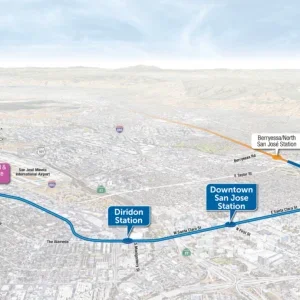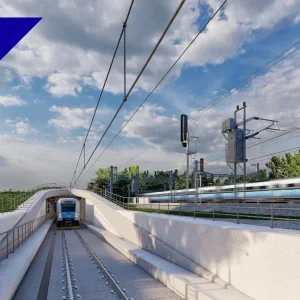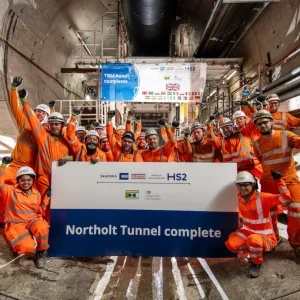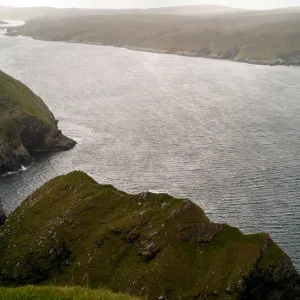A joint venture of Ramboll Danmark, Arup and Tunnel Engineering Consultant (TEC) has been awarded the tunnel engineering consultancy contract for the possible immersed tube to be built across the Fehmarn Belt between Germany and Denmark.
Work on the tunnel study is to be supported by subconsutants that backed the bid – WTM Engineers, HTG Ingenieurburo fur Bauwesen, Wilkinson Eyre Architects, Schonherr Landskab and Oriental Consultants.
The road and rail crossing is to be 18, 565m long with construction to start in 2012 for the link to open six years later. The tunnel would consist of two 10m-wide cells for road traffic and also two 6.37m-wide cells for single-track railways. Construction work will also involve establishing a ventilation island in the middle of the crossing.
The Ramboll, Arup, TEC JV beat two rival shortlisted groups to take forward the tunnel option in competition against a cable stayed bridge alternative, which was awarded to another consortium in a separate tender competition.
Both options are being taken forward as it is not yet established what would best suit the geotechnical and environmental conditions, which are currently starting detailed studies.
The client, Femern Baelt A/S – a subslidiary of Sund & Baelt A/S, which built and operates the Storebaelt and Oresund crossings – said it would develop the tunnel and bridge designs for Fehmarn until a marked, definitive advantage for one becomes apparent. Previously, the client said the tunnel option was expected to continue to about 2011 – the year before construction of the chosen alternative is due to commence.
In pre-survey analysis last year, the bridge option was calculated to be the cheaper option. The bridge alternative was estimated to cost Euro4.3bn (US$5.74bn – 2007 currencies) versus the tunnel budget of Euro5.5bn (US$7.35bn).
Femern Baelt A/S’ chief executive, Peter Lundhus, said all bids from the shortlisted groups, for the tunnel and bridge, were technically qualified and those that were financially advantageous were chosen. Details of the bid structure were not available. The bids were received in December (T&TI, January, px).
The losing consortia for the tunnel study were a partnership of Grontmij/Carl Bro, Faber Maunsell, Bung, Grontmij/BGS and Capita Symonds, and a JV of Cowi and Obermeyer Planen + Beraten (supported by subconsultants Flint & Neill Partnership and Dissing + Weitling). The latter group was also almost the same as the JV that won the bridge study, beating three competitors.







